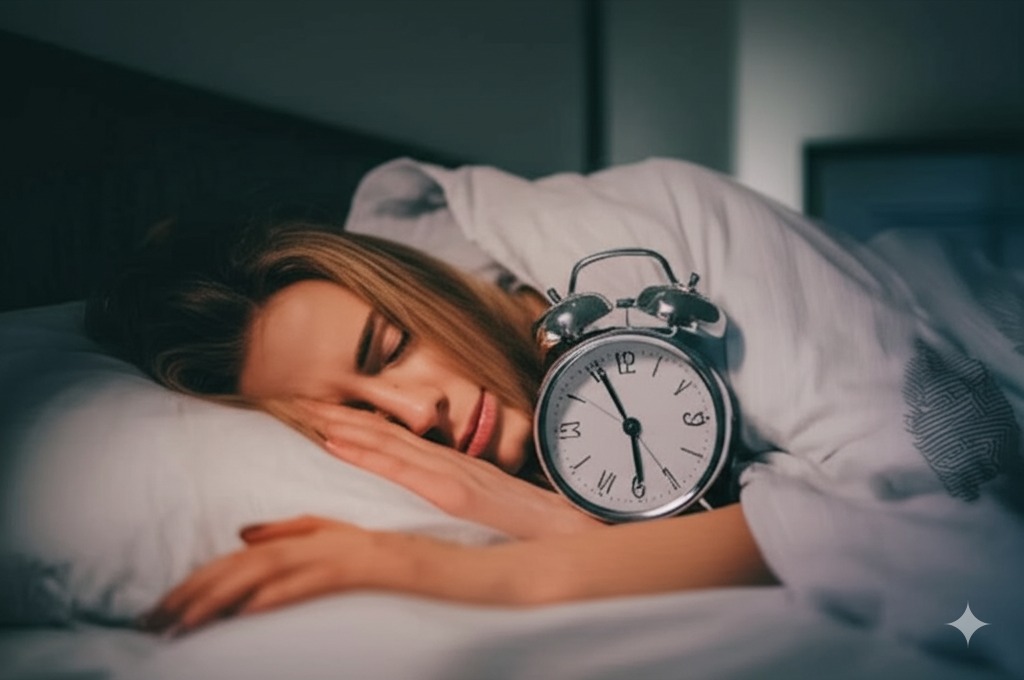Key Takeaways
- Sleep and mental health have a bidirectional relationship—each affects the other
- Even one night of poor sleep can increase negative thinking by up to 30%
- Chronic sleep deprivation is linked to higher rates of depression, anxiety, and PTSD
- Improving sleep quality can be as effective as medication for mild depression
- CBT-I (Cognitive Behavioral Therapy for Insomnia) shows 80% effectiveness rates
You've probably noticed it yourself: after a bad night's sleep, the world feels harder. Small problems become mountains. Your patience wears thin. That presentation you were confident about suddenly feels impossible.
This isn't just in your head—or rather, it is, but in a very real, measurable way. The relationship between sleep and mental health is one of the most studied and significant connections in neuroscience, and understanding it could be the key to improving both your nights and your days.
01 The Sleep-Mind Connection
For decades, researchers viewed sleep problems as a symptom of mental health disorders. If you were depressed, of course you'd have trouble sleeping. But groundbreaking research over the past 15 years has flipped this understanding on its head.
"Sleep is not just a symptom of mental illness—it's a cause, a consequence, and a potential treatment target all at once."
— Dr. Matthew Walker, Why We Sleep
We now know the relationship is bidirectional: poor sleep can trigger mental health problems, and mental health problems can cause poor sleep. This creates a feedback loop that, left unchecked, can spiral downward rapidly.
The Feedback Loop
02 What Happens When You Don't Sleep
Your brain doesn't simply "turn off" during sleep—it's remarkably active, performing essential maintenance that affects everything from memory consolidation to emotional processing.
The Amygdala Goes Haywire
A landmark 2007 study at UC Berkeley used fMRI imaging to observe what happens in sleep-deprived brains when shown emotionally negative images. The results were striking: the amygdala—our brain's emotional alarm system—showed 60% more reactivity in sleep-deprived participants compared to well-rested ones[1].
Even more concerning, the prefrontal cortex—the rational, planning part of your brain that normally keeps the amygdala in check—showed significantly reduced connectivity with the amygdala after sleep deprivation. In other words, not only does your emotional response intensify, but your ability to regulate it weakens.
Memory and Cognitive Function
During deep sleep, your brain transfers memories from short-term to long-term storage. During REM sleep, it processes emotional experiences, essentially "detoxifying" them of their emotional charge. Skip either, and you'll notice the effects.
03 Sleep & Mental Health Conditions
The connection between sleep and mental health isn't abstract—it shows up in very specific, measurable ways across different conditions.
Depression
Up to 90% of people with depression report sleep problems. But here's what's crucial: insomnia often precedes depressive episodes by weeks or months, suggesting it may be a warning sign—or even a cause[2].
Anxiety Disorders
Anxiety and sleep exist in particularly tight feedback. Anxious thoughts prevent sleep; sleep deprivation amplifies anxiety. Brain imaging shows the anticipatory regions of the brain become hyperactive after poor sleep[3].
PTSD
REM sleep plays a critical role in processing traumatic memories. People with PTSD often have disrupted REM, which may explain why traumatic memories remain so vivid and intrusive rather than fading over time.
Bipolar Disorder
Sleep disruption can trigger manic episodes in people with bipolar disorder. Conversely, stabilizing sleep patterns is often one of the most effective ways to prevent episodes.
04 Breaking the Cycle
The bidirectional relationship between sleep and mental health means you have two entry points for improvement: you can work on your sleep, your mental health, or ideally both. Here's what the research says actually works.
"Treating insomnia is one of the most powerful interventions we have for improving mental health outcomes."
— Dr. Rachel Manber, Stanford Sleep Medicine
CBT-I: The Gold Standard
Cognitive Behavioral Therapy for Insomnia (CBT-I) is now considered the first-line treatment for chronic insomnia—even before sleep medications. It works by addressing both the behaviors and thoughts that perpetuate sleep problems.
A meta-analysis of 87 studies found CBT-I produces improvements in sleep that are comparable to sleep medications in the short term, but superior in the long term because the effects persist after treatment ends[4].
Evidence-Based Strategies
Sleep Restriction
Counterintuitively, spending less time in bed (initially) can improve sleep efficiency. This builds sleep pressure and strengthens the bed-sleep association.
Stimulus Control
Use your bed only for sleep. If you can't sleep after 20 minutes, get up. This retrains your brain to associate bed with sleep, not wakefulness.
Cognitive Restructuring
Challenge catastrophic thoughts about sleep ("I'll never function tomorrow"). These thoughts increase arousal and make sleep harder.
Relaxation Training
Progressive muscle relaxation, deep breathing, and mindfulness meditation all show measurable improvements in sleep onset and quality.
05 When to Seek Help
Seek Professional Help If:
- Sleep problems persist for more than 3 weeks despite good sleep hygiene
- You're experiencing symptoms of depression or anxiety
- Sleep issues are significantly affecting work, relationships, or daily functioning
- You're relying on alcohol or medications to sleep
- You have thoughts of self-harm or suicide
A sleep specialist, psychiatrist, or psychologist trained in CBT-I can help determine whether your sleep problems are primary or secondary to another condition.
Remember: improving your sleep isn't a luxury or a nice-to-have. It's one of the most powerful things you can do for your mental health. Every good night's sleep is an investment in your emotional resilience, cognitive function, and overall wellbeing.
Sources & Further Reading
- "The human emotional brain without sleep—a prefrontal amygdala disconnect." Current Biology, 17(20), R877-R878. (2007) PubMed →
- "Insomnia as a predictor of depression: A meta-analytic evaluation." American Journal of Psychiatry, 168(10), 1147-1149. (2011) PubMed →
- "Overanxious and underslept." Nature Human Behaviour, 4, 100-110. (2020) Nature →
- "Cognitive Behavioral Therapy for Chronic Insomnia: A Systematic Review and Meta-analysis." Annals of Internal Medicine, 163(3), 191-204. (2015) PubMed →
Recommended Books
- Why We Sleep by Matthew Walker, PhD
- The Sleep Solution by W. Chris Winter, MD
- Say Good Night to Insomnia by Gregg D. Jacobs, PhD







